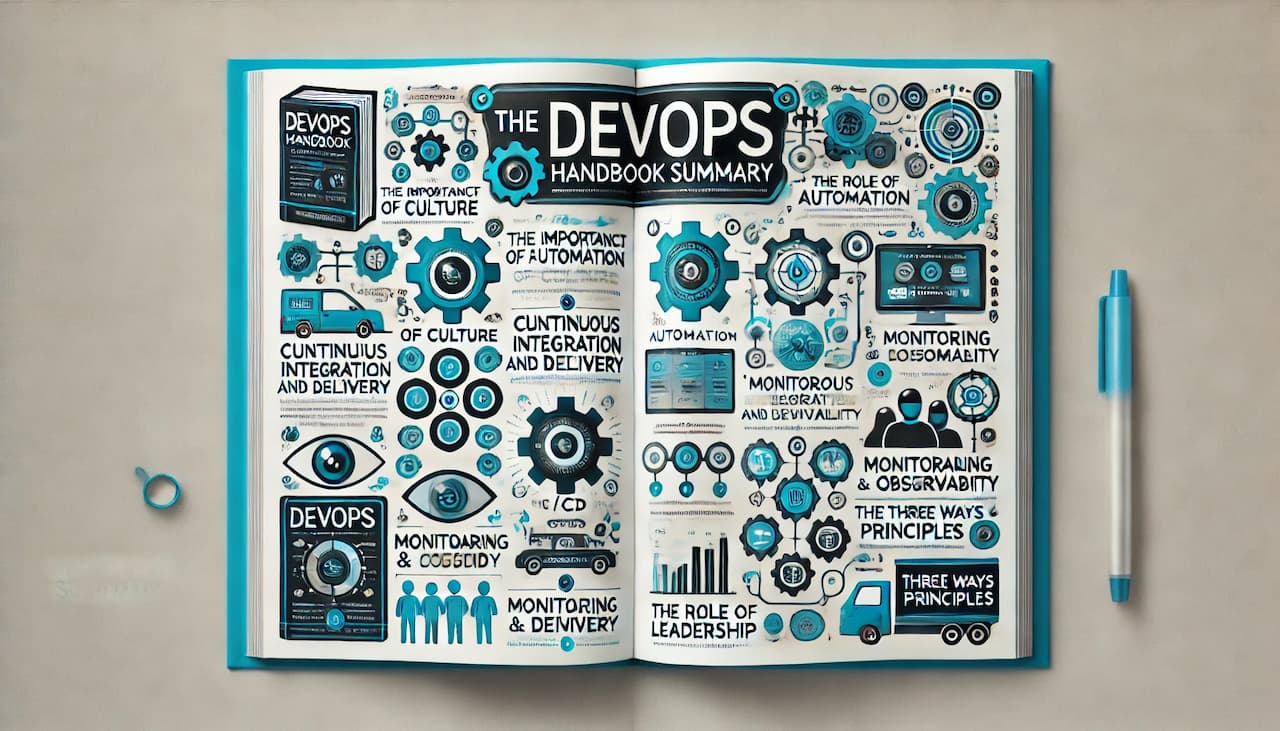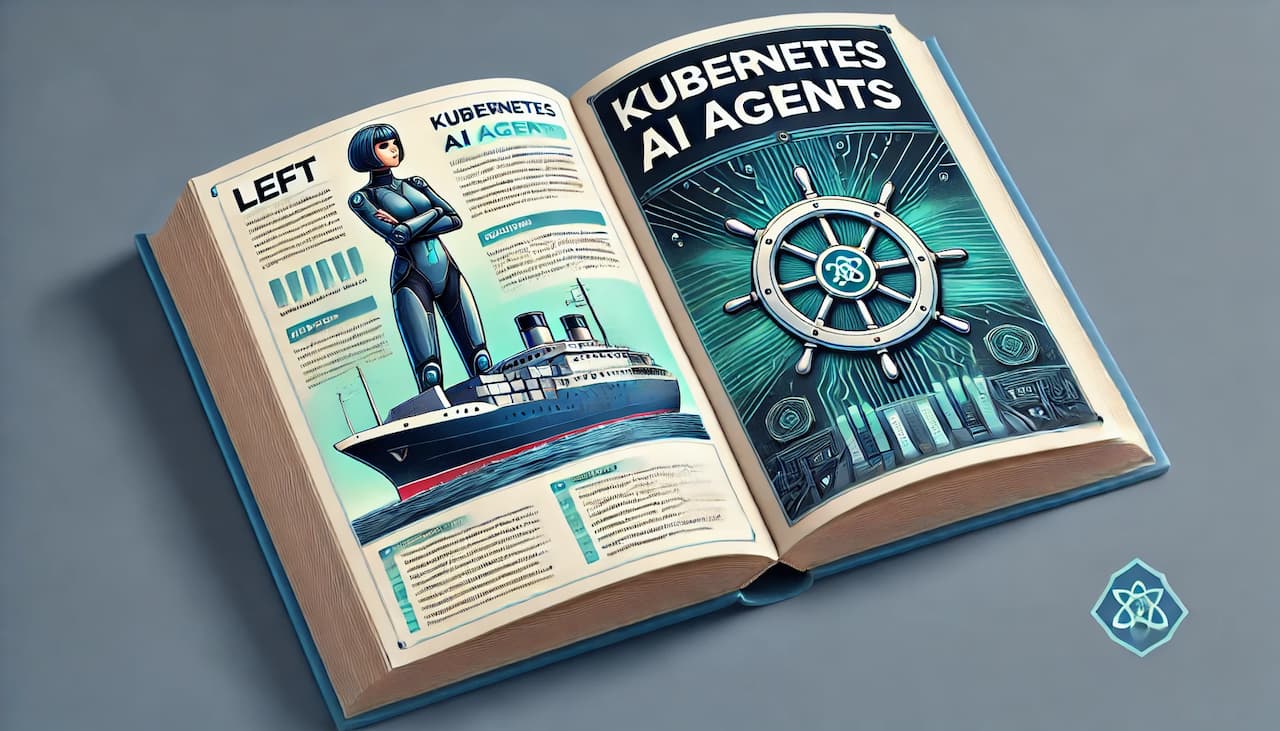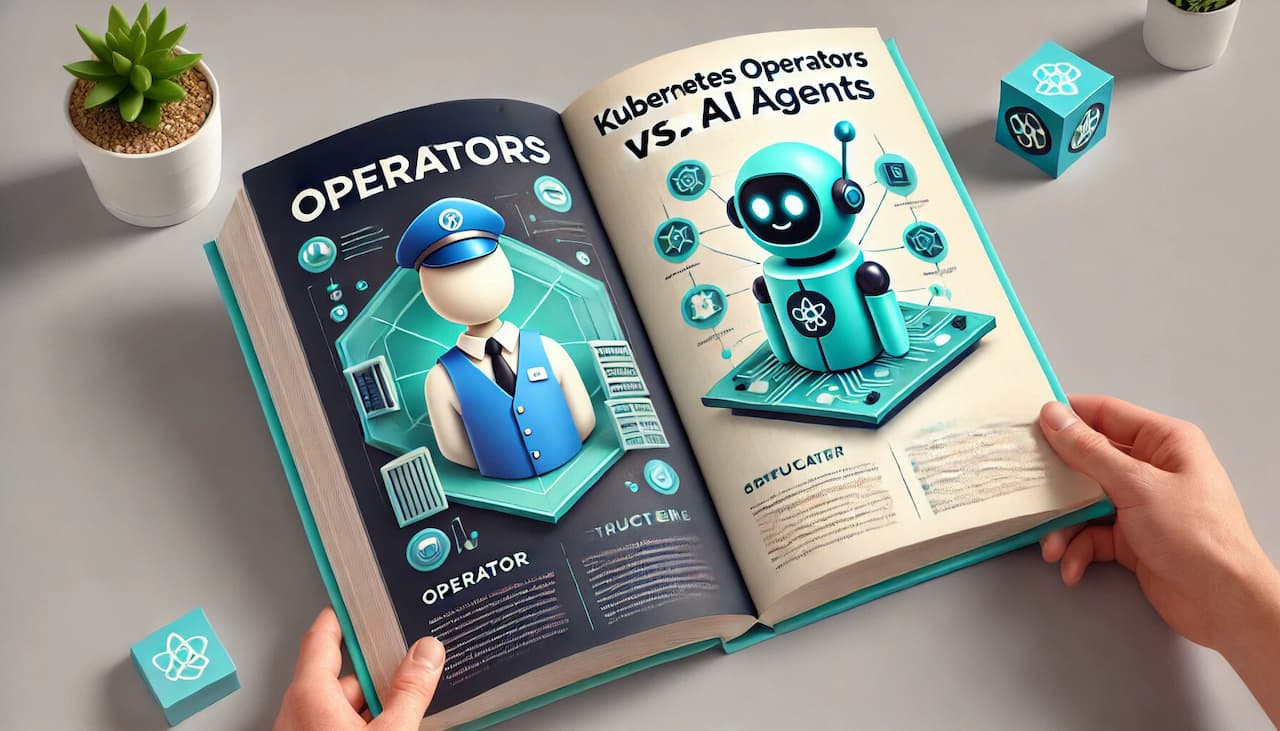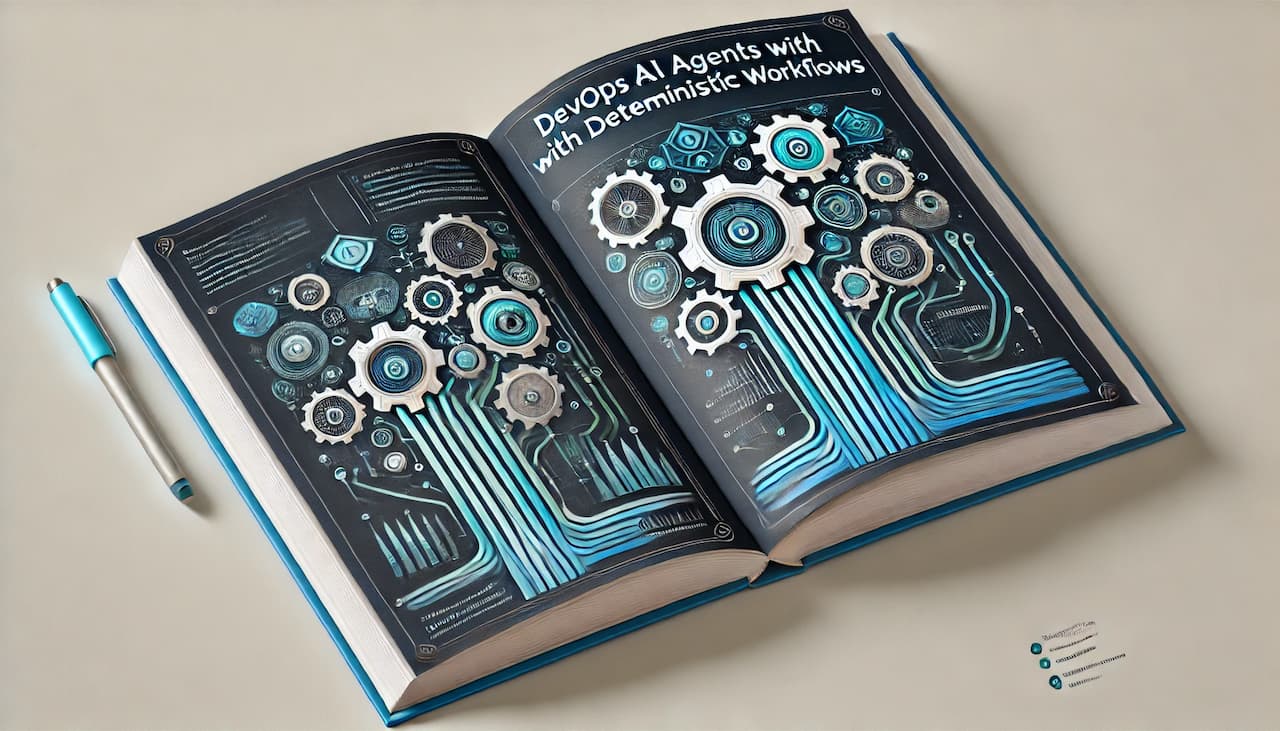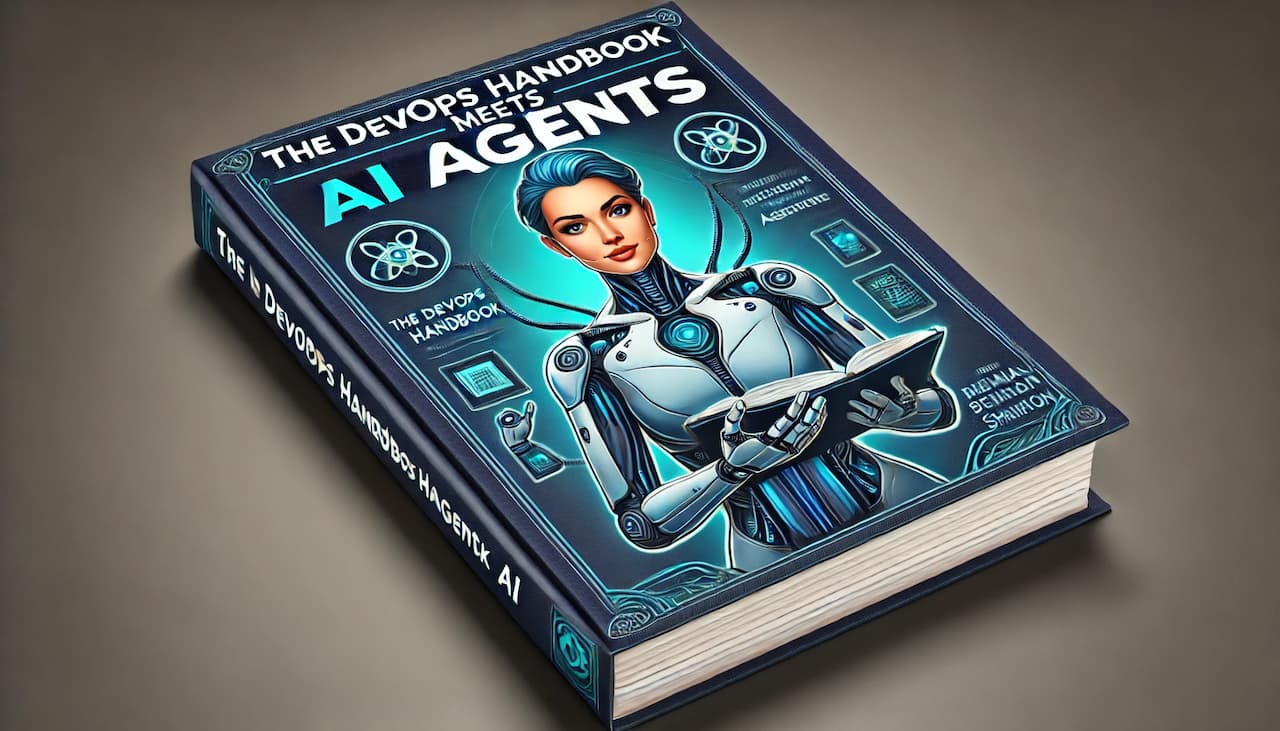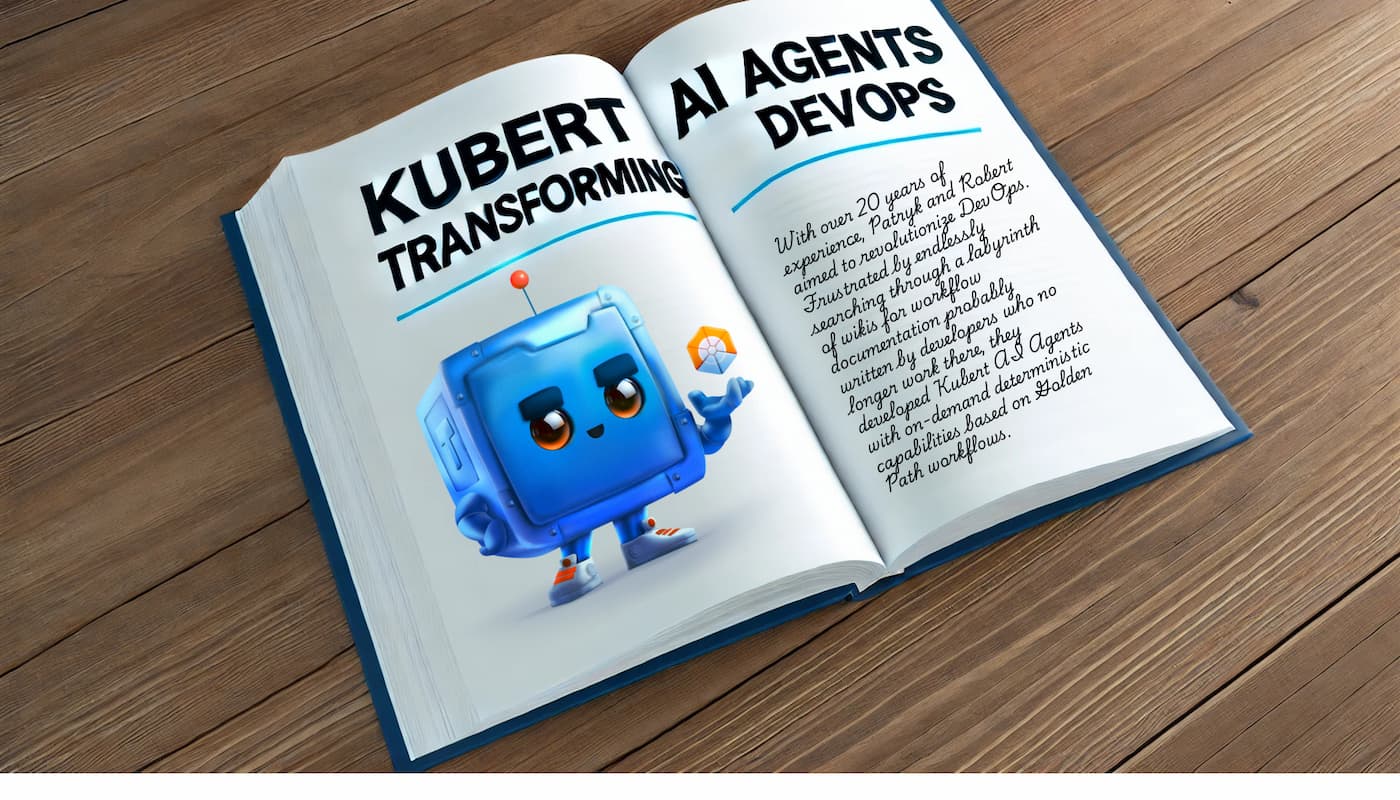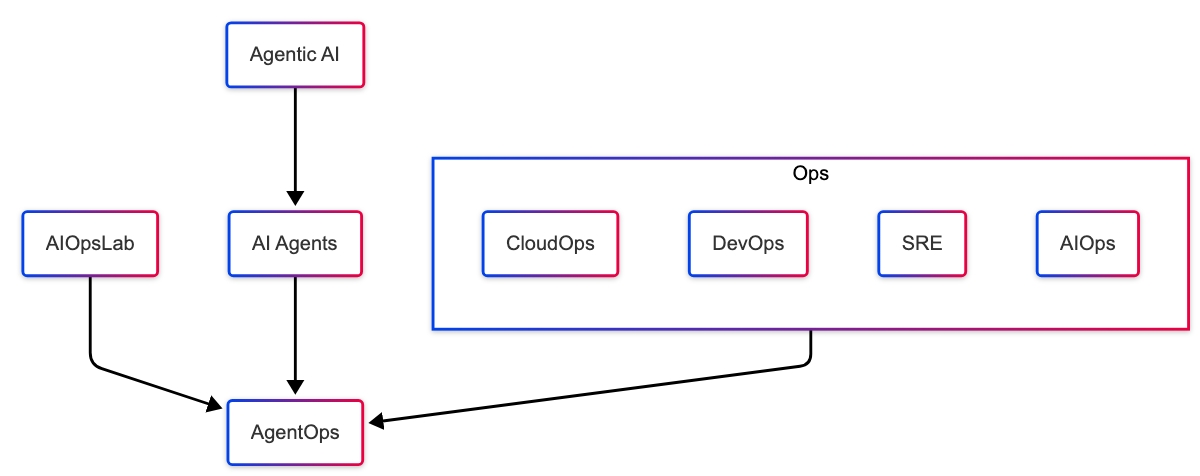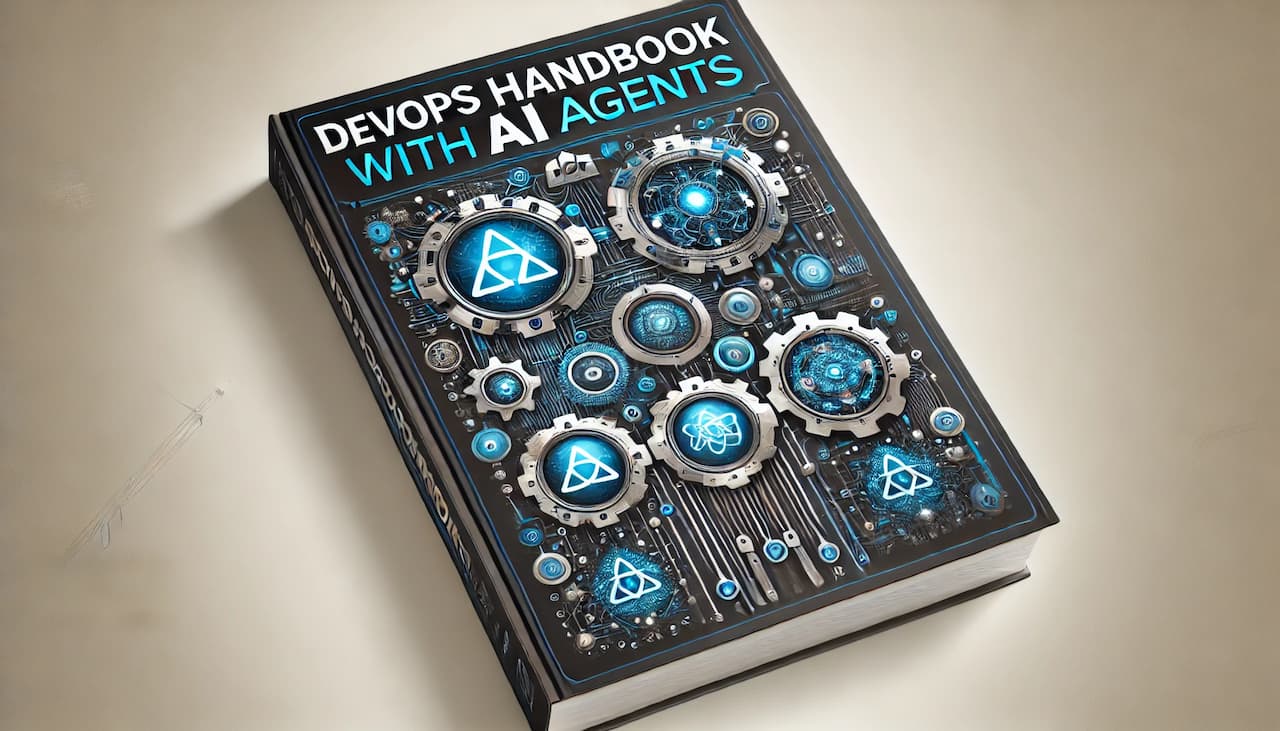
DevOps Handbook with AI Agents: Transforming Automation and Efficiency
The principles laid out in The DevOps Handbook, such as automation, continuous delivery, and feedback loops, are more critical than ever. DevOps has fundamentally changed how development and operations teams collaborate, enabling faster delivery, better communication, and more resilient software.
With the introduction of AI agents in DevOps, a new era of efficiency is emerging. However, it’s essential to understand that AI agents are not the ultimate solution for every problem. Maintaining oversight is crucial, and AI should complement, not replace, the human element. We have found the middle ground by adding on-demand deterministic agents: automation drives efficiency, but engineers retain essential control.
We’ll explore how DevOps AI agents align with the core principles of the DevOps Handbook and the immense potential they offer.
Imagine eliminating the mundane tasks from your DevOps workload, leaving only the creative, strategic work that moves the needle. This vision becomes a reality with on-demand AI agents integrated into DevOps processes.
The DevOps Handbook Summary
Let’s revisit some fundamental principles from the DevOps Handbook.
The DevOps Handbook is a foundational guide for implementing DevOps principles and practices, focusing on improving collaboration between development and IT operations teams for faster, more reliable software delivery. Key themes include:
1. The Importance of Culture
DevOps thrives on a cultural shift that emphasizes collaboration and continuous learning. Successful DevOps adoption relies on fostering a mindset of experimentation, feedback, and shared ownership between teams.
2. The Role of Automation
Automation is critical in speeding up development and operations workflows by eliminating repetitive, error-prone tasks. Automating CI/CD pipelines, security checks, and infrastructure provisioning helps achieve reliability and agility.
3. Continuous Integration and Delivery (CI/CD)
Building, testing, and releasing software in small, frequent increments improves reliability and reduces risks. CI/CD pipelines ensure that code changes are smoothly integrated and deployed in production environments, allowing for rapid iteration.
4. Monitoring and Observability
Keeping systems healthy and reliable requires continuous monitoring and deep observability. Effective tracking allows teams to detect and resolve issues before they impact users.
5. The Role of Leadership
Leaders play a pivotal role in enabling DevOps by promoting collaboration, providing necessary resources, and fostering a culture of continuous improvement.
6. The ‘Three Ways’ Principles
The DevOps framework is built on three fundamental principles:
- Flow: Streamlining the work process from idea to delivery by eliminating bottlenecks and improving efficiency.
- Feedback: Continuously gathering data from systems and customers to improve processes and performance.
- Continuous Learning: Fostering a culture where teams constantly learn and refine their practices based on data and feedback.
These principles lay the groundwork for delivering reliable, responsive software and form the foundation for integrating AI agents into modern DevOps workflows.
What is AIOps? Understanding the Foundation Before AI Agents
AIOps, or Artificial Intelligence for IT Operations, is more than a buzzword; it represents a transformative approach to managing IT environments by leveraging AI and machine learning. AIOps optimizes IT operations at its core, helping teams monitor performance, detect issues, and automate responses, especially in complex, data-heavy environments. It integrates vast data streams from monitoring tools, logs, and incident management systems, using analytics to filter noise, identify critical events, and facilitate rapid incident resolution.
Understanding AIOps sets the stage for the role of AI agents. While AIOps provides an overarching intelligent management framework, AI agents act as specialized digital assistants. These agents take focused actions like monitoring metrics, detecting anomalies, handling incident responses, and surfacing insights. By turning the broad capabilities of AIOps into actionable steps, AI agents support IT teams with hands-on assistance, reducing downtime and improving system resilience in real-time.
AI Agents in DevOps
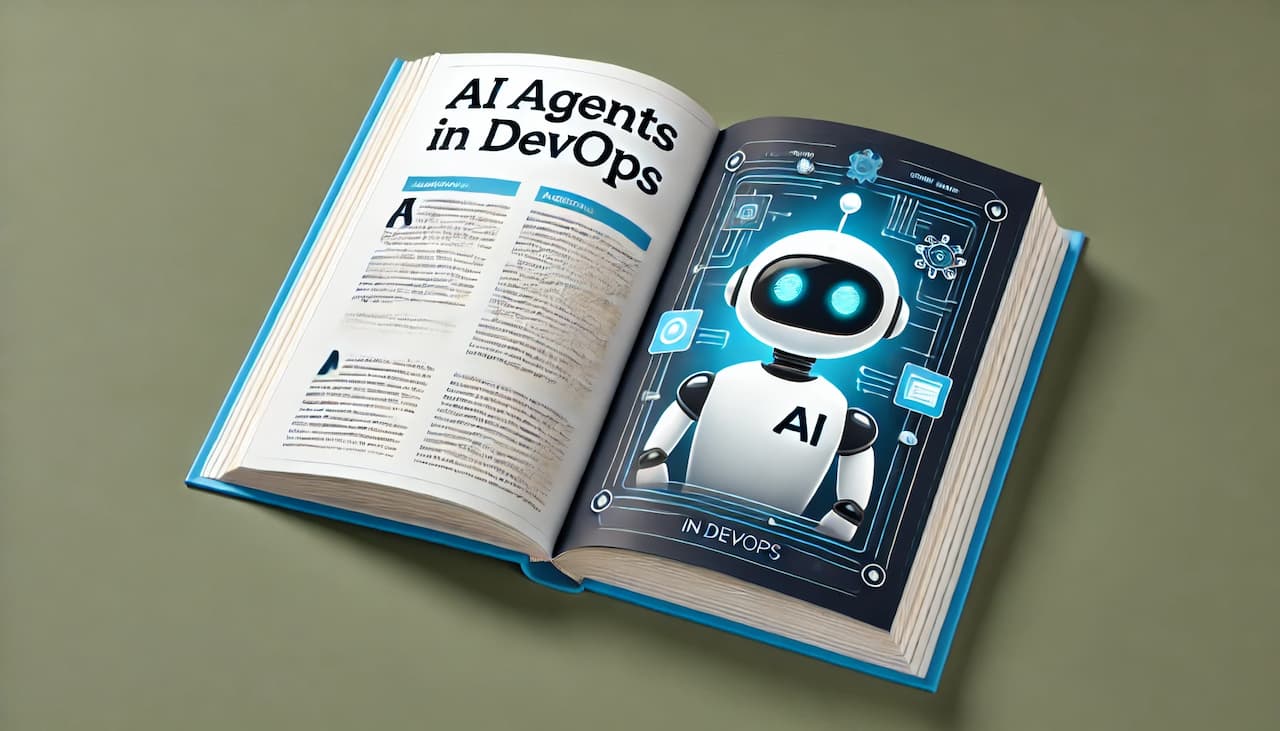 DevOps AI Agents are advanced, intelligent systems that autonomously manage real-time scaling, deployment, and resource optimization tasks. Their primary focus is handling repetitive, mundane tasks that DevOps engineers would otherwise need to manage manually, such as monitoring system performance or dynamically scaling clusters based on demand. By taking over these repetitive tasks, AI agents allow engineers to concentrate on strategic initiatives, like improving application performance or exploring innovative solutions.
DevOps AI Agents are advanced, intelligent systems that autonomously manage real-time scaling, deployment, and resource optimization tasks. Their primary focus is handling repetitive, mundane tasks that DevOps engineers would otherwise need to manage manually, such as monitoring system performance or dynamically scaling clusters based on demand. By taking over these repetitive tasks, AI agents allow engineers to concentrate on strategic initiatives, like improving application performance or exploring innovative solutions.
AI agents consist of several key components:
1. Tools (Perception + Action)
Tools are the mechanisms that allow AI agents to perceive their environment and take the necessary actions. In Kubernetes environments, AI agents leverage tools like Prometheus for monitoring, HashiCorp Vault for security, and Cert Manager for managing certificates. These tools provide the AI agents with critical information needed to perform complex tasks.
2. Reasoning + Decision Making
AI agents process data from their environment, using machine learning models to make informed decisions. For example, an AI agent could scale up a Kubernetes cluster during high-traffic periods or allocate more resources to a service with high latency.
3. Memory + Reflection
AI agents “remember” past interactions and learn from them, improving their future behaviour. Agents can optimize future decisions by tracking how previous actions impacted system performance.
4. Personality + Collaborative Behaviour
In DevOps, collaborative behaviour is expressed through multi-agent systems, where agents work together seamlessly to achieve optimized outcomes. AI’s learning and decision-making capabilities enhance core DevOps principles like automation, flow, and feedback as agents collectively learn, adapt, and respond within complex Kubernetes environments.
Kubernetes AI Agents
As Kubernetes adoption grows, managing these environments becomes increasingly complex. Kubernetes AI Agents offer a revolutionary approach to automating and optimizing operations in Kubernetes environments. With Kubernetes becoming the de facto platform for DevOps orchestration, AI agents can further extend DevOps principles by handling tasks like scaling, monitoring, and cost optimization without human intervention.
How Kubernetes AI Agents Transform DevOps: A Collection of Human-Activated, Agentic Workflows
Kubernetes AI agents can operate autonomously or with human activation, adapting to varied DevOps needs. In critical systems, human-activated workflows are often preferred for transparency and oversight. These agents form a collection of golden path workflows, helping DevOps teams optimize Kubernetes clusters while maintaining essential control.
AI agents build on existing golden paths established by industry tools like Helm for package management, Prometheus and Grafana for observability, and Vault for secrets management. As these golden paths shape best practices, AI agents represent the next step in driving efficiency and automation.
Example Use Case
Imagine an e-commerce application experiencing a sudden spike in traffic during a flash sale. SREs receive alerts through ChatOps channels like Slack, identifying the spike. Instead of engineers scrambling to manage resources, a Kubernetes on-demand AI agent is triggered. The agent activates a workflow with metrics analysis, scales up services, reallocates resources, and ensures no disruption. The agent manages these tasks effectively, keeping costs low, all with minimal human intervention.
Comparing Kubernetes Operators and AI Agents
Understanding the differences between Operators and AI agents becomes key as Kubernetes evolves. Both play vital roles in managing environments, but AI agents bring a more advanced and adaptable approach beyond traditional operators.
| Feature | Operators | AI Agents |
| Control Loop | Fixed and Deterministic | Flexible, with Machine Learning-Driven |
| Adaptability | Low | High (Can Learn and Adapt) |
| Human-in-the-Loop Option | No | Yes, for Critical Workflows |
Operators maintain stability, while agents provide advanced adaptability and decision-making capabilities, making them perfect for intricate Kubernetes workflows.
Golden Paths in DevOps: Guiding Agentic Workflows
Golden Paths (also known as Paved Roads) are standardized workflows that consolidate best practices to reduce cognitive load and ensure consistency. These predefined pathways guide developers through critical tasks like observability, deployment, support, and testing, aligning seamlessly with agentic workflows by emphasizing automation, efficiency, and minimizing human error.
For example, when a resource spike alert triggers, the Observability Golden Path for SREs initiates an immediate response. The alert notifies the team via Slack, automatically creating a Jira ticket to log critical details. SREs then analyze metrics with Prometheus and logs via Loki, using Jaeger traces to identify bottlenecks. If needed, Kubernetes autoscaling or rate-limiting is applied to stabilize the system. Once resolved, the Jira ticket is updated with insights, and dashboards are refined, providing a quick, reliable response framework for future incidents.
Designing Golden Paths for Agentic Workflows
Golden Paths and agentic workflows share many similarities. Both aim to simplify and optimize processes, ensuring stability, efficiency, and consistency. Here is a streamlined approach to designing Golden Paths that also aligns with how we design agentic workflows:
- Define Goals: Set clear performance, stability, or resource efficiency objectives.
- Identify the Audience: Determine who will use these workflows: DevOps engineers, SREs, developers, or operations teams.
- Research Best Practices: Collect industry insights to ensure your Golden Path follows current best practices.
- Select Tools: To enhance the workflow, use tools like Prometheus (for monitoring) and OpenCost (for cost optimization).
- Create a Prototype: Develop a working workflow version, integrating automation tools and AI-driven processes.
- Document and Iterate: Continuously gather feedback and refine the workflow to meet evolving needs.
On-Demand Golden Path Examples
- Resource Optimization Golden Path: Automated scaling and resource management to optimize performance.
- Cost Management Golden Path: Streamlined infrastructure for improved cost-efficiency.
- Observability Golden Path: Agents for metrics, logs, and incident response to empower SREs with fast issue resolution and oversight.
Golden Paths act as blueprints that are ideally suited for designing agentic workflows. They reduce decision fatigue, promote consistent best practices, and ensure that workflows are standardized and flexible, allowing rapid adaptation to changing requirements.
DevOps AI Agents with Deterministic Workflows
Deterministic workflows ensure that AI agents follow predictable, predefined paths, reducing the likelihood of errors. AI agents utilize Golden Paths and tools from the DevOps toolkit to form these deterministic workflows, making them essential for managing cloud-native environments like Kubernetes. These workflows enhance automation, reliability, and innovation by standardizing best practices and integrating AI agents’ real-time learning capabilities.
The DevOps Handbook Meets AI Agents: Revolutionizing Automation and Efficiency
The DevOps Handbook emphasizes the need for automation in modern software development. Automation allows teams to deliver faster while reducing the risks of human error. At its core, DevOps is about improving collaboration, speeding up delivery pipelines, and fostering a culture of continuous improvement. Traditionally, DevOps teams have relied on tools and scripts to automate repetitive tasks like testing, deployment, and infrastructure management.
With the introduction of on-demand deterministic AI agents, we are entering a new era of automation. Unlike proactive agents that autonomously react to system changes, on-demand deterministic agents are activated by specific conditions, decisions, or direct human triggers. This brings a new level of precision and reliability to cloud-native workflows.
How On-Demand Deterministic Agents Revolutionize Automation:
- Predictable Actions on Demand: Deterministic agents execute predefined actions precisely when required, ensuring no unintended system changes occur. This reduces risk in critical workflows by ensuring that only the necessary steps are performed and only when needed.
- Human-Centric Control with Intelligent Guidance: Engineers can trigger these agents at key decision points, retaining control while leveraging AI to optimize execution. This guided automation is perfect for high-stakes deployments where transparency is key.
- Minimized Downtime Through Timely Interventions: These agents are valuable for reducing downtime. For example, an engineer can trigger an on-demand agent to execute a failover procedure, ensuring the system remains highly available during maintenance windows or unexpected outages.
- Enhanced Precision: On-demand agents strictly follow deterministic paths, making the process highly predictable and repeatable, ideal for compliance-heavy environments or situations requiring exact action sequences.
By incorporating on-demand, deterministic agents into DevOps practices, teams can achieve a higher level of control and reliability in automation. These agents extend the automation principles outlined in the DevOps Handbook by combining precise human activation with the power of intelligent, AI-driven workflows.
Automation: AI-Driven Workflows for Kubernetes
The DevOps Handbook emphasizes automation as the key to scaling modern software development. DevOps AI agents elevate this automation in Kubernetes environments, enabling teams to focus on innovation and strategic initiatives.
How AI Agents Revolutionize Automation
- Scaling and Optimized Deployments: With AI agents and proven golden paths, scaling and optimization are based on standardized tasks and processes. AI agents streamline the execution of these actions, ensuring consistency, reducing human error, and maintaining optimal performance during peak loads. This enables teams to respond faster and enhance reliability.
- CI/CD Integration: AI-driven continuous delivery pipelines minimize code-to-deployment time by automating the entire pipeline.
- Example: SREs monitor traffic patterns and use AI agents to adjust resources based on predefined parameters, balancing cost efficiency with performance when managing resource allocation during traffic spikes.
Flow: Accelerating DevOps Pipelines with AI
Flow, a fundamental DevOps principle, refers to optimizing the movement of work through the system. DevOps AI agents enhance flow by ensuring efficient CI/CD pipelines, minimizing friction from development to production.
DevOps AI Agents and CI/CD Flow
- End-to-End Automation: Automating code integration to production reduces bottlenecks and ensures scalability.
- On-Demand Adjustments: Agents execute deployments based on predefined triggers and historical data, following deterministic paths to ensure consistency.
- Zero Downtime Deployments: Achieve continuous service through intelligent, on-demand agent-activated rollouts.
Example: If a deployment fails due to a misconfiguration or resource bottleneck, an AI agent can instantly detect the issue, roll back changes, and adjust future deployment strategies to prevent similar failures, all under a deterministic workflow.
Feedback Loops: Continuous Improvement with AI Agents
The second “way” in DevOps is feedback—gathering data, analyzing it, and using it to improve. On-demand AI agents enhance these feedback loops, adding adaptability and intelligence while deployed only when needed. By combining automated actions with human expertise, these agents create a resilient workflow that continuously learns and optimizes. They also contribute to organizational learning, keeping feedback and improvements aligned.
Example: During a surge in traffic from on-demand video creation, latency spikes unexpectedly. Once alerted, an on-demand AI agent is triggered, activating a workflow that includes incident resolution, generating an incident report, and summarizing lessons learned. Using historical data enhanced by human-AI collaboration, the agent scales infrastructure instantly. If the issue persists, a human expert can intervene to ensure stability. A 3 a.m. issue doesn’t seem that bad anymore.
Continuous Learning: The Future of DevOps with AI Agents
In DevOps, Continuous Learning is key to staying competitive. By learning from their interactions in Kubernetes environments, Kubert AI agents bring this principle to the next level. Every decision, anomaly detection, and system adjustment feeds into the agent’s learning loop, making it smarter and more efficient.
How AI Agents Learn
- Learning from Deterministic Actions: AI agents learn from the outcomes of their deterministic workflows to make better decisions in the future.
- Adaptive Workflows: AI agents can adapt to new situations by adjusting their predefined actions based on recent performance data.
- Predictive Intelligence: Over time, AI agents can predict potential bottlenecks or failures and take preventive measures, improving system reliability while adhering to deterministic workflows.
Example: As your Kubernetes infrastructure scales, Kubert AI agents learn which resources are most critical for high-traffic applications, ensuring they are prioritized in future deployments. The AI adapts and refines its predefined strategies to meet new challenges, ensuring continuous optimization.
Kubert AI Agents Transforming DevOps
Kubert AI Agents are transforming DevOps with their on-demand, deterministic capabilities built on proven Golden Path workflows. These Golden Paths are crafted from Patryk and Robert‘s vision and 20+ years of industry experience, incorporating lessons from successes and failures. Leveraging the Kubert Toolkit with tools like HashiCorp Vault, Prometheus, Loki, Cert Manager, OpenCost, and LangGraph as the lead workflow engine, Kubert is designed by experts with deep Kubernetes and cloud-native expertise. Each Golden Path is rigorously tested to ensure agents streamline DevOps workflows with precision and efficiency.
Kubert AI Agents combine best-in-class automation, robust observability, and seamless integration, enabling organizations to optimize and scale their cloud-native environments effectively. Built on real-world experience, these paths are designed to withstand challenges and support an accurate multi-agent system that seamlessly integrates agents. By using these on-demand agents, teams can ensure consistent, error-free operations while maintaining oversight and control, making Kubert a leader in AI-driven DevOps innovation.
Conclusion: The Future of DevOps is AI-Driven
The DevOps Handbook emphasizes the need for automation, feedback, and continuous learning to create efficient and reliable development environments. Kubert AI agents bring these principles into the AI age, transforming how teams manage and optimize Kubernetes clusters. DevOps AI agents empower teams to focus on innovation and strategy rather than day-to-day infrastructure management by automating complex workflows, learning from real-time data, and continuously adapting.
As AI advances, AI agents are redefining the role of DevOps tools by automating processes and driving continuous improvement. In DevOps, AI agents are here, shaping the future of how we build, deploy, and scale applications in cloud-native environments.
